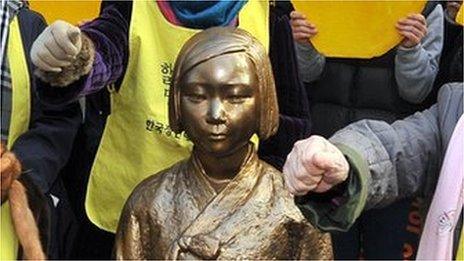South Korea and Japan's feud explained
- Published
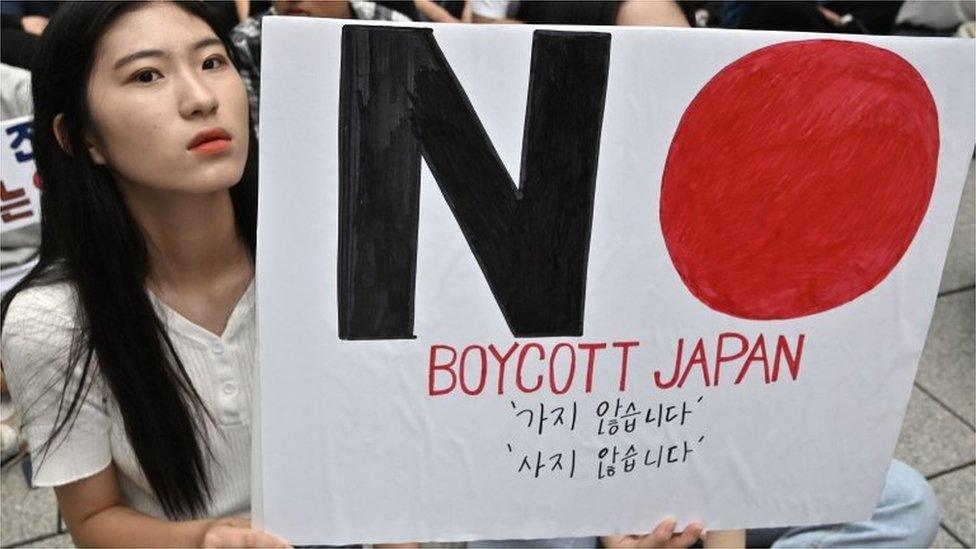
The dispute has angered people in both countries
The ongoing trade and political dispute between South Korea and Japan is tied to lingering wounds dating back more than 100 years.
However, as the countries are two of the world's largest economies and giants in technology, the tit-for-tat dispute also has global implications.
At the centre is South Korea's demands that Japan pay what they consider to be appropriate reparations for atrocities committed during the Japanese occupation of the Korean peninsula from 1910 to 1945, particularly the use of forced labour.
But Japan considers the issue to be settled.
So what exactly is going on?
What's the background to the fight?
The two nations share a complicated history. They have fought on and off since at least the 7th Century, and Japan has repeatedly tried to invade the peninsula since then.
In 1910, it annexed Korea, turning the territory into a colony.
By the late 1930s, Japan was starting to mobilise for war. It began to force people to work in the factories and mines, or enlist as soldiers.
It also sent tens of thousands of women from across Asia - many of them Korean - into military brothels to service Japanese soldiers. The victims became known as "comfort women".
Japan's rule of Korea ended in 1945 when it was defeated in the war. But it took another 20 years before South Korean President Park Chung-hee agreed to normalise relations with the country in exchange for hundreds of millions of dollars in loans and grants.
Tokyo argues that the 1965 treaty that restored diplomatic ties and provided more than $800m (£620m) in Japanese financial help, has settled the matter.
However, it remains far from resolved.
Why isn't the issue settled?
Yoo Euy-sang, a diplomat and author of the book Diplomatic Propriety & Our Interests With Japan, told the South China Morning Post the row was ongoing for two reasons, external: one, the 1965 deal did not "settle all the problems related to our colonial past", and two, that it "took away citizens' individual rights to ask for reparations".
The issue of "comfort women" remained particularly contentious: in 2015, Japan apologised and promised to pay 1bn yen ($9.5m; £7.9m) - the amount South Korea asked for - to fund victims.
"Japan and South Korea are now entering a new era," Japanese Prime Minister Shinzo Abe told reporters at the time. "We should not drag this problem into the next generation."
But activists say they were not consulted, and rejected the deal. President Moon Jae-in, elected in 2017, suggested it be altered.
The historic dispute rumbles on, with neither country looking likely to bend.
Why has it blown up now?
The issue reared its head again in 2018, when South Korea's top court ordered a Japanese firm to compensate Koreans it used as forced labour.
Mitsubishi Heavy, one of the firms involved, has reportedly refused to comply with the court order, while two other companies have had their assets seized in South Korea.
The issue has angered many in South Korea, with people boycotting Japanese goods. One man smashed up his Japanese-made car.
It's also led to a flare up in tensions over a group of islands claimed by both countries.
The Japanese government, meanwhile, stuck to its line, saying all reparation issues had been settled by the 1965 treaty.
A man smashed up his Japanese-made car in protest at the trade dispute
Then, in August 2019, Japan announced it was going to remove Seoul's favoured trade partner status and imposed export controls on its important electronics sector - vital for South Korean companies like Samsung.
Seoul then announced it had decided to end the country's intelligence-sharing pact because of the decision. It said it caused a "grave" change in security co-operation between the two countries.
Japan's Foreign Minister Taro Kono called it a "complete misjudgement of the current regional security environment" and said Tokyo would "strongly protest" to Seoul about it. There has been no response yet from Washington, which had pushed for the pact three years ago, in part to help track North Korea's missile activity.
Stock markets slipped amid fears that the trade spat could badly affect electronics around the world.
However, there were perhaps signs tensions may be calming in November, when South Korea announced it had decided to continue a military intelligence-sharing pact.
- Published12 August 2019
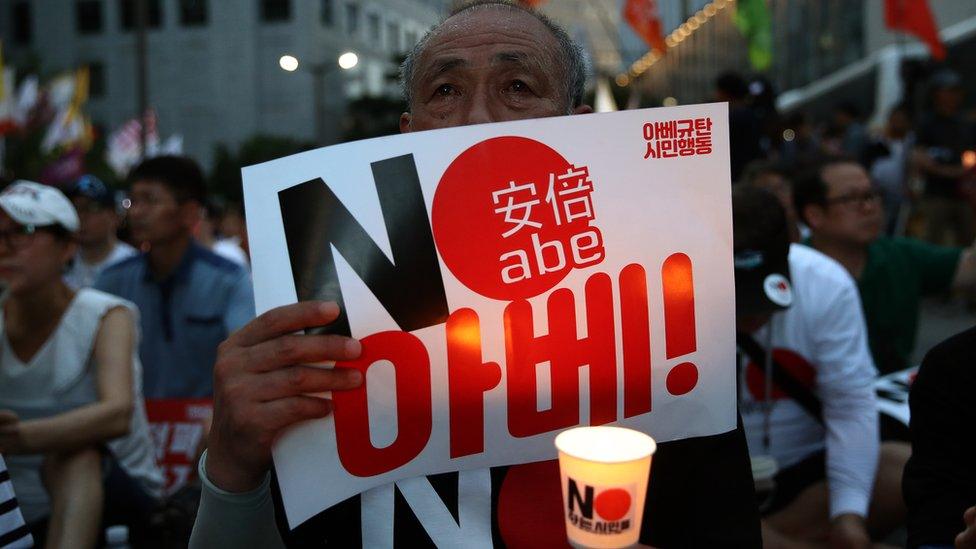
- Published2 August 2019
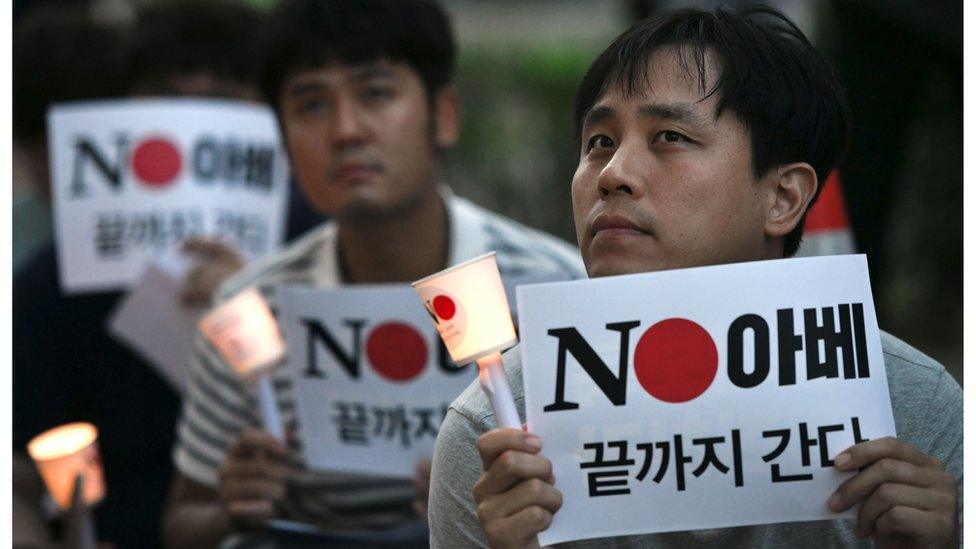
- Published10 July 2017
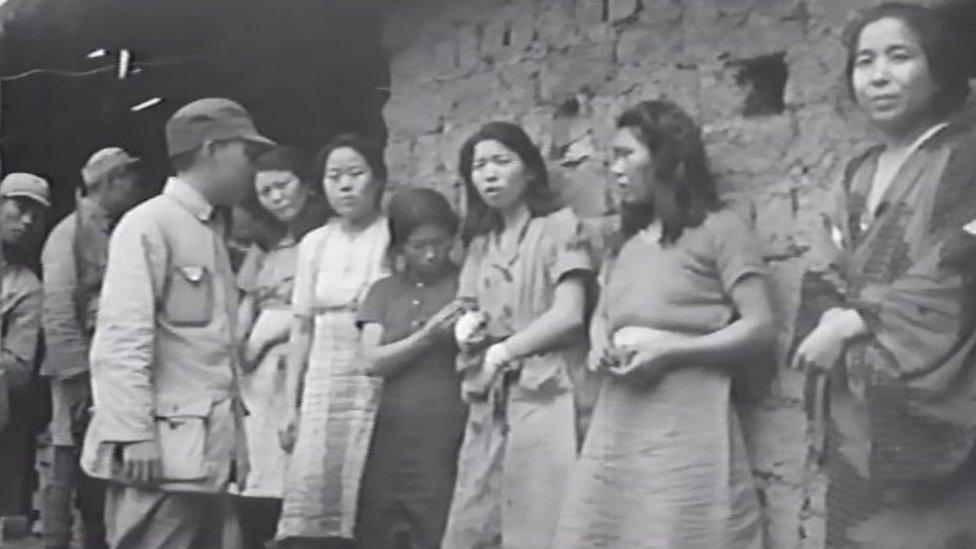
- Published3 August 2015

- Published3 August 2015
